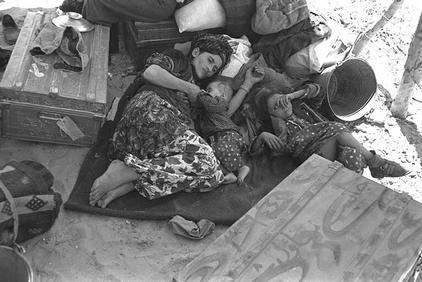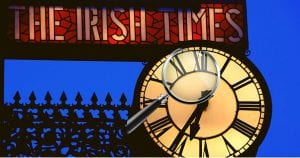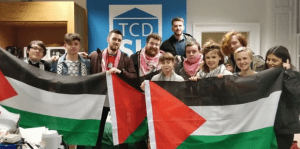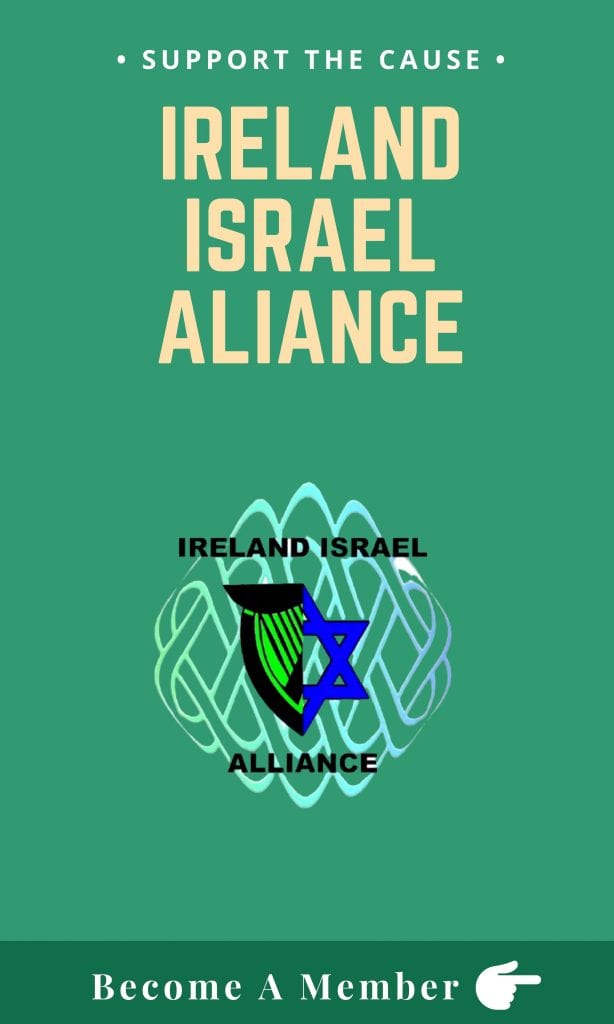Two tragic anniversaries:
- The Farhud pogrom begins in Baghdad, Iraq, 1 June 1941
- A suicide bomber murders 21 Israelis in Tel Aviv, 1 June 2001
1. The Farhud pogrom, 80 years ago today
In June 1941, the Jewish populations trapped in eastern Europe, with the doors of Europe and America closed against them, would soon face mass slaughter as the Wehrmacht advanced through eastern Poland, Ukraine and the Baltic states. Meanwhile, the 135,000-strong Jewish community of Iraq lived out a very different reality.
The community’s history stretched back 2,500 years to the Babylonian conquest of 586 BCE, when a large section of the population of the Kingdom of Judah was abducted into captivity. When the opportunity came 70 years later to return to Israel, a section of the community elected to stay. Over the centuries the Babylonian Jews not only prospered but made their home a leading centre of Jewish culture, thought and scholarship. There is evidence that the Pentateuch (first five books of the Bible) was written there some centuries before the Christian era, and the Babylonian Talmud was composed there in the years 500-700 CE.
Following the Arab conquest in the 7th century CE, the land of Iraq was ruled by a succession of Muslim empires for almost 1,300 years. With the collapse of the Ottoman empire in 1920, it became a League of Nations British Mandate territory and achieved independence in 1932. Jewish fortunes had fluctuated over the centuries under Muslim rule, but in the newly independent state the Jewish community, by then comprising one-third of Baghdad’s population, played a flourishing role in the country’s economic and cultural life due to its standard of education, international commercial links and multi-lingual skills.
In April 1941, German military successes in the Balkans, Greece and North Africa had put Britain on the defensive and it seemed likely that the Nazis might win the war. At this point Rashid al-Kailani, a pro-German nationalist politician, launched a military coup, sending Iraq’s pro-British government into exile.
One of Rashid’s chief advisers was Hajj Amin al-Husseini, former Mufti of Jerusalem, a leader of the failed Arab Palestinian revolt and a leading opponent of the growing Jewish presence in Mandate Palestine. Nazi influence and antisemitism were already rife in the country since the 1930s; radio broadcasts from Berlin and the translation of Mein Kampf into Arabic stirred up anti-Jewish hatred.
On 1 June, the feast of Shavuot, anti-Jewish rioting began in Baghdad and soon developed into a full-scale pogrom, known as the Farhud. Mobs, armed with knives, axes and swords and with the complicity of the police and army, murdered between 150 and 180, raped many women and wounded some 600 people over two days. Some 1,500 Jewish stores and homes were looted. It was estimated by the community’s leaders that 2,500 families suffered directly from the pogrom. The re-entry of pro-British troops restored order, but a fatal blow had been dealt to the confidence and security of the Jewish community and to its sense of its future place in Iraqi society.
The Farhud pogrom prefigured the later tragedy of Iraq’s Jews. Prosperity returned for a few years after the restoration of order. But in 1947-49, the years of the UN partition plan for Palestine and Israel’s struggle for independence in the face of the Arab invasion, anti-Jewish rioting was a frequent occurrence. In 1948, connections to Zionism became a capital offence. Leaving the country meant forfeit of citizenship and confiscation of property left behind. In 1952, emigration was banned, even as increasing persecution in many forms made life intolerable for the Jewish population. In response, 104,000 members of the community were evacuated to Israel between 1949 and 1951 in Operations Ezra and Nechemiah, while another 20,000 were smuggled out via Iran.


By 1951, ten years after the Farhud, 92 per cent of Iraq’s 2,500-year-old Jewish community (124,000 of the population of 135,000) had emigrated to Israel. According to an article in Times of Israel in March this year, four adult Jews now remain in Iraq.
2. The Dolphinarium massacre, 20 years ago today
On 1 June 2001, an Islamist suicide bomber affiliated to Hamas entered the Dolphinarium beach-front discotheque in Tel Aviv and blew himself up, murdering 21 Israelis, including one soldier and 16 teenagers, most of them girls.
The second intifada had begun the previous September and the years 2001-05 saw many such mass casualty atrocities against Israelis, with both Hamas and Fatah terrorists using the weapon of the suicide bomber on buses, in restaurants and at other public venues.
By 2005, the death toll of Israeli citizens, both Jewish and Arab, in these attacks had reached 1,185. The attacks were gradually stopped by the building of the security barrier close to the ‘green line’ to prevent infiltration of terrorists from Judea-Samaria (the ‘West Bank’). This effective measure of self-defence has, of course, become a propaganda weapon in the hands of the enemies of Israel and their gullible western allies, being castigated as an ‘apartheid wall’.
It should be remembered that the second intifada, launched by the Palestinian Liberation Organisation (PLO) leader Yasser Arafat (himself an Egyptian), came just after he had walked away from the Camp David peace proposals of summer 2000 and during a second attempt at peace negotiations at Taba, Egypt, in January 2001. The Camp David proposals had offered to elevate the limited autonomy of the Palestinian Authority in Areas A and B of the West Bank to full Palestinian statehood on more than 90 per cent of the territory, with land swaps and a shared capital in Jerusalem.
As in the past, Israel’s efforts to make peace were interpreted as signs of weakness. Once again, Palestinian Arab desire to eradicate the Jewish state took precedence over its desire for a state of its own.
By Dermot Meleady




